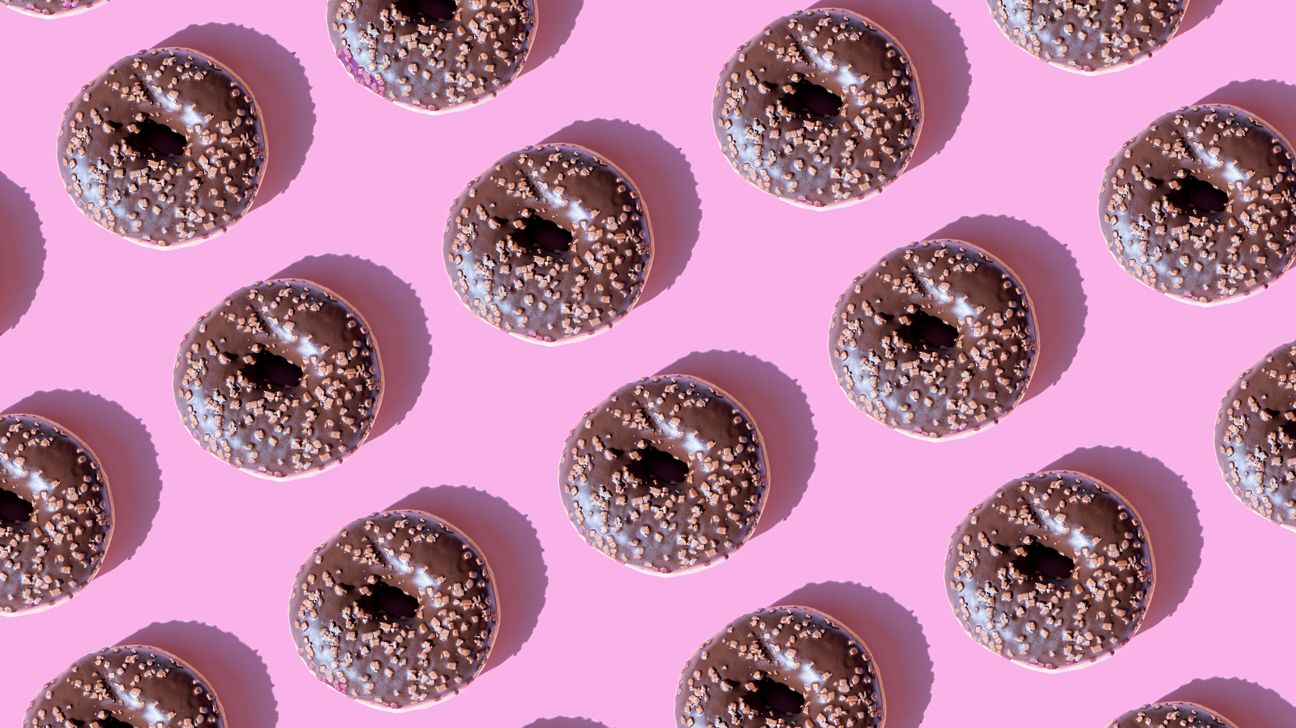Dark chocolate is loaded with antioxidants! It helps protect your heart! It can even boost your mood and brainpower!
There’s no shortage of evidence that chocolate — especially the dark stuff — is pretty darn good for you. But then there’s that whole thing about how it might cause acne or make it worse. If you’re plagued by pimples, what should you do?
It turns out there’s no definitive answer, but science does have some solid clues.
Here’s a look at the case for and against chocolate, whether certain types might be worse for your skin than others, and why it’s important to look at your diet as a whole instead of singling out one food.
It would be pretty sweet if you could point to a single food as the cause of all your skin woes. (Cut it out and bam! Your zits are zapped.) On the other hand, you just might find chocolate too damn delicious to give up completely. But if you’re striving for clearer skin, will it actually help?
The research isn’t exactly conclusive. Some studies suggest there’s a link between chocolate consumption and increased acne lesions. For instance, in a 2016 study, college students who ate chocolate developed more new pimples within 48 hours than those who ate jelly beans.
Another small study from the same year found that acne-prone men who ate 99 percent dark chocolate daily developed more acne after 2 weeks than those who skipped the chocolate.
That sounds pretty compelling, but these kinds of results haven’t been found across the board.
For instance, a 2012 observational study in which participants kept a food diary found no link between chocolate consumption and acne. A 2006 study even found that women who drank a chocolaty drink every day for 12 weeks had healthier skin overall than those who drank a less potent version of the drink.
In short, some studies suggest chocolate might trigger breakouts or make them worse, but others fail to connect the dots. While certain dietary patterns seem to be bad news for your skin (more on those a little later), experts overall don’t agree that one specific food leads to acne.
Dark chocolate containing at least 70 percent cocoa serves up the most potent health perks. But does that make it the best (er, least harmful) option for your skin?
No studies have directly compared the effects of dark, milk, and white chocolate on skin. But here’s what we do know: Sugar-rich foods and those with higher glycemic indexes — including foods like white bread, bagels, and cookies — tend to be worse for acne overall.
Research also suggests that insulin resistance, which can result from eating a high sugar diet — is linked to worse acne.
All this seems to indicate that the more sugar a type of chocolate contains, the more likely it could be to trigger a breakout. With that line of thinking, darker chocolate would be better for your skin than milk chocolate and white chocolate, which are higher in sugar.
But that’s just a theory, and it’s far from definitive. While dark chocolate’s antioxidants are thought to potentially protect skin and help keep blood sugar levels stable, there’s still some evidence that even pure cocoa with zero added sugar could have a negative effect on acne.
The bottom line? It’s possible that dark chocolate might trigger fewer pimples than other types of chocolate. But chocolate in general might also have properties that spur breakouts.
There’s not enough research to say for sure either way, so your best bet is to keep track of which foods seem to affect your skin most and limit your consumption or steer clear of those foods.
While it’s hard to say for sure whether chocolate directly causes acne, we have solid evidence from large-scale studies showing that certain dietary patterns are linked to more pimples.
Specifically, we’re talking foods high in sugar and refined carbohydrates, according to studies in France and the United States that had thousands of participants. Think baked goods, candy, white bread, white pasta, and yup, chocolate, especially the white or milk kind.
These kinds of carbs trigger blood sugar spikes, which are thought to bring on pimples in two ways: Higher blood sugar means more inflammation and seems to spur skin to produce more oil. That combo can set the stage for clogged pores and breakouts.
On the other hand, limiting sugar intake and sticking with mostly complex carbohydrates (like whole grains, beans, and sweet potatoes) can help keep blood sugar levels and oil production in check. And both of those diet changes can potentially make acne less severe.
tl;dr
There’s not enough evidence to definitively say whether chocolate causes acne. But diets high in refined carbs — whether chocolate or other sugary foods — can for sure set the stage for breakouts.
Try to stick with complex carbs most of the time, and when you’re jonesing for chocolate, go for lower-sugar options with at least 70 percent cocoa.
Finally, pay attention to how your food choices affect your skin. If it seems like you break out every single time you have chocolate, it might be worth scaling back your consumption.


